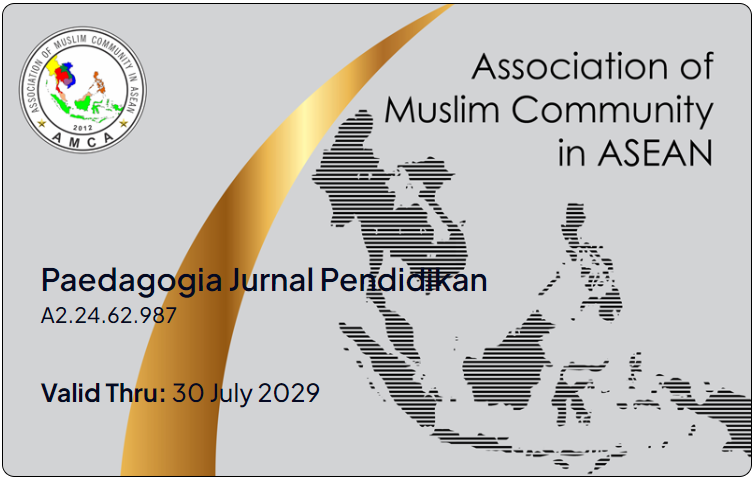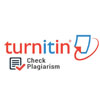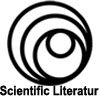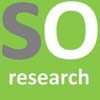The Religious Cognition: A Meta-Analysis Study of Indonesian Students' Religious Learning Achievement
Abstract
The large number of published studies related to religious learning achievement in the cognitive domain certainly raises questions in the minds of research users, especially if the conclusions produced vary from one study to another. Therefore, to find out the average of students' religious learning achievement in Indonesia on the cognitive aspect, it is necessary to carry out a meta-analysis. The meta-analysis in this study aims to determine the average effect size of the aggregate Islamic learning achievement of students in Indonesia. This research uses a quantitative approach using meta-analysis. Research data was collected from various studies including journal articles, theses and student theses from 2009-2023 which were obtained through internet searches using the keyword Islamic learning achievement. The results of the research show that the average Islamic learning achievement of Indonesian students is 83.00 with a standard error of the weighted random model of 1.526 with a combined average score of 80.05 and an upper limit of 85.95. This shows that the ability/achievement in learning the Islamic religion of Indonesian students at the elementary to middle school levels has exceeded the minimum completeness, namely 75. Based on the Regression Method and Trim and Fill analysis, it was found that there was no publication bias. So the conclusions made based on the random effect model regarding the average cognitive abilities of students are valid.
Downloads
References
Çiftçi, S. K., & Yildiz, P. “The Effect of Self-Confidence on Mathematics Achievement: The Meta-analysis of Trends in International Mathematics and Science Study (TIMSS)”. International Journal of Instruction 12, No.2, (2019): 683-694.
Çoğaltay, N., & Karadağ, E. “Introduction to meta-analysis”. In Leadership and Organizational Outcomes Springer, Cham. (2015): 19-28
Egger, M., Smith, D.G., Schneider, M.,& Minder, C. (1997). Bias In Meta-Analysis Detective By Simple, Graphical Test. BMJ No.315 (1997) 629-634.
El‐Anzi, F.O. (2005). Academic Achievement And Its Relationship With Anxiety, Self Esteem, Optimism, And Pessimism In Kuwaiti Students. Social Behavior And Personality 33, No. 1 (2005): 95‐104.
Hunter, J. E. & Schmidt, F.L. "Methods Of Meta-Analysis: Correcting Error And Bias In Research Findings" Newbury Park: Sage Publications. Inc. 2004.
Kadir. “Meta-Analysis of the Effect of Learning Intervention Toward Mathematical Thinking on Research and Publication of Student”. TARBIYA: Journal of Education in Muslim Society 4. No. 2 (2017):162-175. https:// doi:10.15408/tjems.v4i2.8010.
Love, A., & Kruger, A.C. (2005). “Teacher Beliefs And Student Achievement In Urban Schools Serving African American Students”. The Journal Of Educational Research 99, No.2 (2005): 87‐98.
Lyons, L.C. ‘Meta-Analysis: Methods Of Accumulating Result Across Research Domains Manassas, Virginia: Portions, 2003.
Majid, A. & Dian A. “Pendidikan Agama Islam Berbasis Kompetensi Konsep Dan Implementasi Kurikulum 2004”. Bandung: PT Remaja Rosdakarya, 2004.
Merdinger, Joan, M., Hines, A.M., Osterling, K.L., & Wyatt, P. “Pathways To College For Former Foster Youth: Understanding Factors That Contribute To Educational Success “. Child Welfare League Of America 84, (2005). 867‐898
Mertens, D. M. “Research And Evaluation In Education And Psychology: Integrating Diversity With Quantitative, Qualitative, And Mixed Methods” Sage publications. 2014.
Moore, D. S “The Basic Practice Of Statistics (4 Th Ed)”. New York: W.H Fereman And Co. 2007.
Olejnik, S., & Algina, J. (2003). “Generalized Eta And Omega Squared Statististik Measures Of Effect Size For Some Psychological Methods “8, No.4 (2003) : 434-447.
Pigott, T.” Advances in meta-analysis “ Springer Science & Business Media. 2012
Purwanto “Evaluasi Hasil Belajar”. Yogyakarta: Pustaka Pelajar. 2010.
Retnawati, H., Apino, E., Kartianom, Djidu, H., & Anazifa, R. D. “Pengantar Analisis Meta”. Yogyakarta, Parama Publishing, 2018
Sabornie, E.J., Cullinan, D., Osborne, S.S., & Brock, L.B. “Intellectual Acade‐ Micy And Behavioral Functioning Of Students With High‐Incidence Disabilities: A Cross‐Categorical Meta‐Analysis “. Council For Exceptional Children 72, No. 1 (2005):47‐63.
Subarkah, I.“Studi Meta Analisis Pengaruh Scientific Approach dalam Meningkatkan Hasil Belajar Pendidikan Agama Islam” Jurnal Cakrawala Kebumen, Manajemen Pendidikan Islam (MPI) 2, No. 2 .(2018)
Sugiyono “ Metode Penelitian Pendidikan.” Alfabeta, Bandung, 2011
Sujana, N. “ Proses dan Hasil Belajar” Jakarta: Bumi Aksara. 2010
Sujana, N. “Proses dan Hasil Belajar”. Jakarta: Bumi Aksara. 2010.
Trainin, G., & Swanson, H. Lee. “Cognition, Metacognition, And Achieve‐ Ment Of College Student With Learning Disabilities”. Learning Disability Quarterly 28, (2005): 261‐272.
Tsani, I “Model Evaluasi Aspek Afektif Pada Pendidikan Agama Islam Di Madrasah Aliyah Dan Pondok Pesantren”. Thesis, UNY (2018) Https://Eprints.Uny.Ac.Id/57781/
Copyright (c) 2024 Paedagogia: Jurnal Pendidikan

This work is licensed under a Creative Commons Attribution-NonCommercial 4.0 International License.
The author agrees to the following conditions upon publishing a work to Paedagogia: Jurnal Pendidikan:
1. Each article is licensed under a Creative Commons Attribution-NonCommercial 4.0 International License. The author(s) recognizes that Paedagogia: Jurnal Pendidikan has the right to be the first to publish under a Creative Commons Attribution-NonCommercial 4.0 International License. This license permits the copying and redistribution of this material in any form or format, as well as the composition, modification, and creation of derivative works of this material for any purpose, but Non commercial, as long as the author is credited with the original work.
2. Authors may submit articles separately or arrange for non-exclusive distribution of manuscripts previously published in this journal in other forms (e.g., to the author's institutional repository, publication in books, etc. ), provided that the manuscript is acknowledged as having been published first in the Paedagogia: Jurnal Pendidikan.
3. A copyright submission agreement must attach each approved manuscript prior to publication. You may obtain the form for the copyright submission agreement here (INA) (EN).

































 This work is licensed under a
This work is licensed under a 